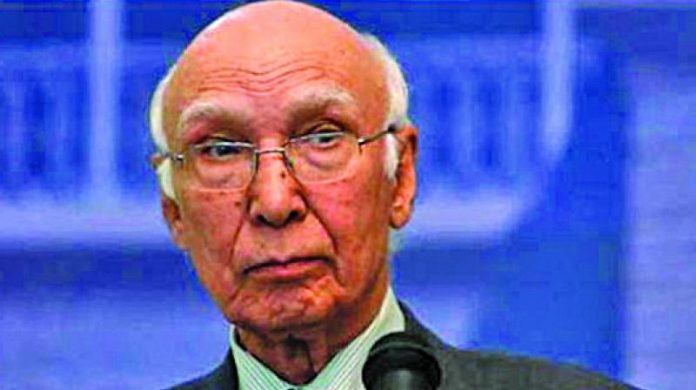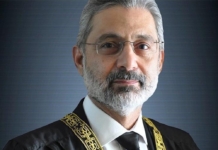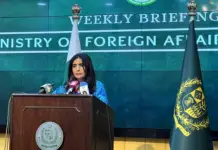Former foreign minister Sartaj Aziz said that Pakistan should learn from the past and not recognize the Afghan Taliban as hastily as it did in the 1990s.
Aziz spoke with a local news channel and said that Pakistan should have waited for the international community before acknowledging the Mullah Omer led government in 1997. Aziz said that Pakistan recognized the Taliban at a time they hadn’t even taken over the whole country after the end of the Russian invasion.
Aziz said that international pressure from the United Nation Security Council (UNSC) mounted on Pakistan after it prematurely nodded acceptance for the neighbouring Taliban government. This was because the Taliban became notorious internationally and Pakistan was seen as their supporter. Afghanistan had harbored the mastermind behind 9/11 terror attack and Al-Qaeda leader Osama bin Laden, which only made the UNSC more critical of Pakistan’s acknowledgment of the Taliban government.
He added that this was one of two mistakes that should be learned from, the second being border mismanagement. Aziz said that Pakistan left its borders unmanned earlier, which led to about 3.5 million refugees, including drugs and arms dealers, into Pakistan. This time around, Pakistan fenced sensitive borders and amalgamated FATA with Khyber Pakhtunkhwa, which also helped better manage refugees.
The former minister also addressed a viral image that depicted him with leader of the interim Mullah Hassan Ahmed Akhund from 22 years ago. Aziz said that he was pictured with Akhund, whom he found quite amenable, when the latter made a diplomatic visit to Pakistan in 1999.
Aziz also stepped back in history and detailed how the Taliban formed initially. He said that after the Russian invasion ended, civil war plagued Afghanistan till 1994, which resulted in the formation of the Taliban. Lack of peace has long marred Afghanistan and the success of the current Taliban leadership would be determined by how they maintained peace, he added.
Aziz further said that the current Taliban takeover seemed positively different. He opined that the new leadership was more progressive in its views on women and came to power without bloodshed. Aziz added that if Taliban ensured that Afghanistan’s soil would not be used for foreign attacks, then it was in the vested interest of regional countries like China, Russia and Pakistan to recognize the Taliban together.







